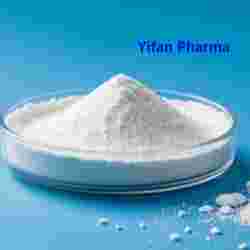
Somatropin, also known as recombinant human growth hormone (rhGH), is a synthetic form of the naturally occurring growth hormone (GH) produced by the pituitary gland.
CAS registry number: 12629-01-5.
Structurally identical to endogenous human growth hormone, somatropin is a 191-amino acid polypeptide with a molecular weight of approximately 22,124 daltons. It is produced using recombinant DNA technology, enabling large-scale production for therapeutic use.
Somatropin plays a critical role in stimulating growth, cell regeneration, and metabolism by binding to GH receptors and activating pathways such as insulin-like growth factor 1. Clinically, it is used to treat growth hormone deficiency (GHD) in children and adults, Turner syndrome, chronic kidney disease-related growth failure, and muscle-wasting conditions.
Due to its potent biological activity, somatropin is strictly regulated and requires medical supervision to ensure safe and effective use. Its applications extend beyond medicine, including research in metabolism, aging, and performance enhancement (though non-medical use is prohibited in sports).
This peptide remains a cornerstone in endocrinology, addressing both developmental and metabolic disorders.

